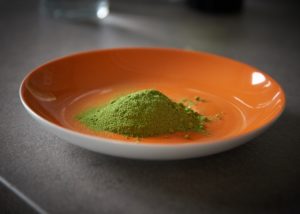For thousands of years, Moringa has been recognized for its health benefits. Moringa oleifera is a medium-sized tree native to North India. It is called by a variety of names, such as horseradish tree, ben oil tree, and drumstick tree. Most parts of the tree can be eaten or used as ingredients in formulating traditional herbal medicines.
Although many benefits of Moringa have already been found, these are just a fraction of what scientists discovered in their studies. Many more are still being uncovered. Listed below are the health benefits of Moringa which are supported by scientific research.
Health Benefits of Moringa
1. Contains Vitamins and Minerals
 The leaves and pods of Moringa are commonly eaten in many parts of India and Africa. Moringa leaves are a good source of vitamins and minerals. One cup of chopped leaves (21 grams) contains the following nutrients:
The leaves and pods of Moringa are commonly eaten in many parts of India and Africa. Moringa leaves are a good source of vitamins and minerals. One cup of chopped leaves (21 grams) contains the following nutrients:
• Vitamin B6: 19% of the RDA
• Vitamin C: 12% of the RDA
• Riboflavin (B2): 11% of the RDA
• Vitamin A: 9% of the RDA
• Protein: 2 grams
• Iron: 11% of the RDA
• Magnesium: 8% of the RDA
*RDA (Recommended Dietary Allowance)
In many Western countries, dried Moringa leaves are made into dietary supplements, either in capsule or powder form.
The pods of Moringa are generally lower in vitamin and mineral content, but they are found to be exceptionally rich in vitamin C. One cup of fresh, sliced pods weighing 100 grams contains 157% of a person’s daily requirement.
The diet of people in developing countries sometimes lacks protein, vitamins, and minerals. In such places, Moringa can be a good source of these essential nutrients.
2. Rich in Antioxidants
Antioxidants are compounds that fight off free radicals. High levels of free radicals may cause oxidative stress and lead to chronic diseases such as heart disease and type 2 diabetes.
In addition to vitamin C and beta-carotene, the leaves of Moringa oleifera contain several antioxidant plant compounds. These include:
• Quercetin – This powerful antioxidant may help lower blood pressure.
• Chlorogenic acid – Also found in coffee, chlorogenic acid may help lower blood sugar levels after meals.
3. May Lower Blood Sugar Levels
 High blood sugar is the main characteristic of diabetes and can be a serious health problem. If the increase in blood sugar levels is ignored, the risk of having chronic diseases such as heart disease, eye, and kidney problems could increase. For this reason, it is very important that you maintain healthy blood sugar levels.
High blood sugar is the main characteristic of diabetes and can be a serious health problem. If the increase in blood sugar levels is ignored, the risk of having chronic diseases such as heart disease, eye, and kidney problems could increase. For this reason, it is very important that you maintain healthy blood sugar levels.
Many studies conducted have shown that Moringa may reduce blood sugar levels. One study involving 30 women who took 1.5 teaspoons (7 g) of moringa leaf powder daily for three months showed that on average, the fasting blood sugar levels were reduced by 13.5%. Also, a small study involving six people with diabetes found out that adding 50 grams of Moringa leaves to a meal lowered blood sugar by 21%.
4. May Reduce Inflammation
When the body has an infection or has suffered an injury, the body’s natural response is inflammation. Although it’s an essential protective mechanism, it may pose a major health problem if it continues for a long period of time. In fact, prolonged inflammation is associated with many chronic health problems like heart disease and cancer.
To manage inflammation, one has to eat fruits and vegetables, including herbs and spices which have anti-inflammatory properties. However, their capacity to help depends on the kinds and amounts of the anti-inflammatory compounds found in them. Scientists believe that the main anti-inflammatory compounds found in Moringa are isothiocyanates.
5. Can Lower Cholesterol
A person who has high cholesterol has an increased risk of heart disease. Fortunately, many plant foods that we eat can effectively reduce cholesterol. These foods include flaxseeds, oats, and almonds. Studies made on both humans and other animals showed that Moringa may have similar cholesterol-lowering effects.
Conclusion
Moringa oleifera has been used in traditional medicine for thousands of years. This superfood has many health benefits. Among the health benefits of Moringa are modest reductions in the level of blood sugar and cholesterol. It also has antioxidant and anti-inflammatory effects. Moringa leaves are highly nutritious and are therefore recommended for people who are lacking in essential nutrients.
For more tips on health and fitness, sign up to FITin56. If you want to buy Moringa dietary supplements, please click here.

